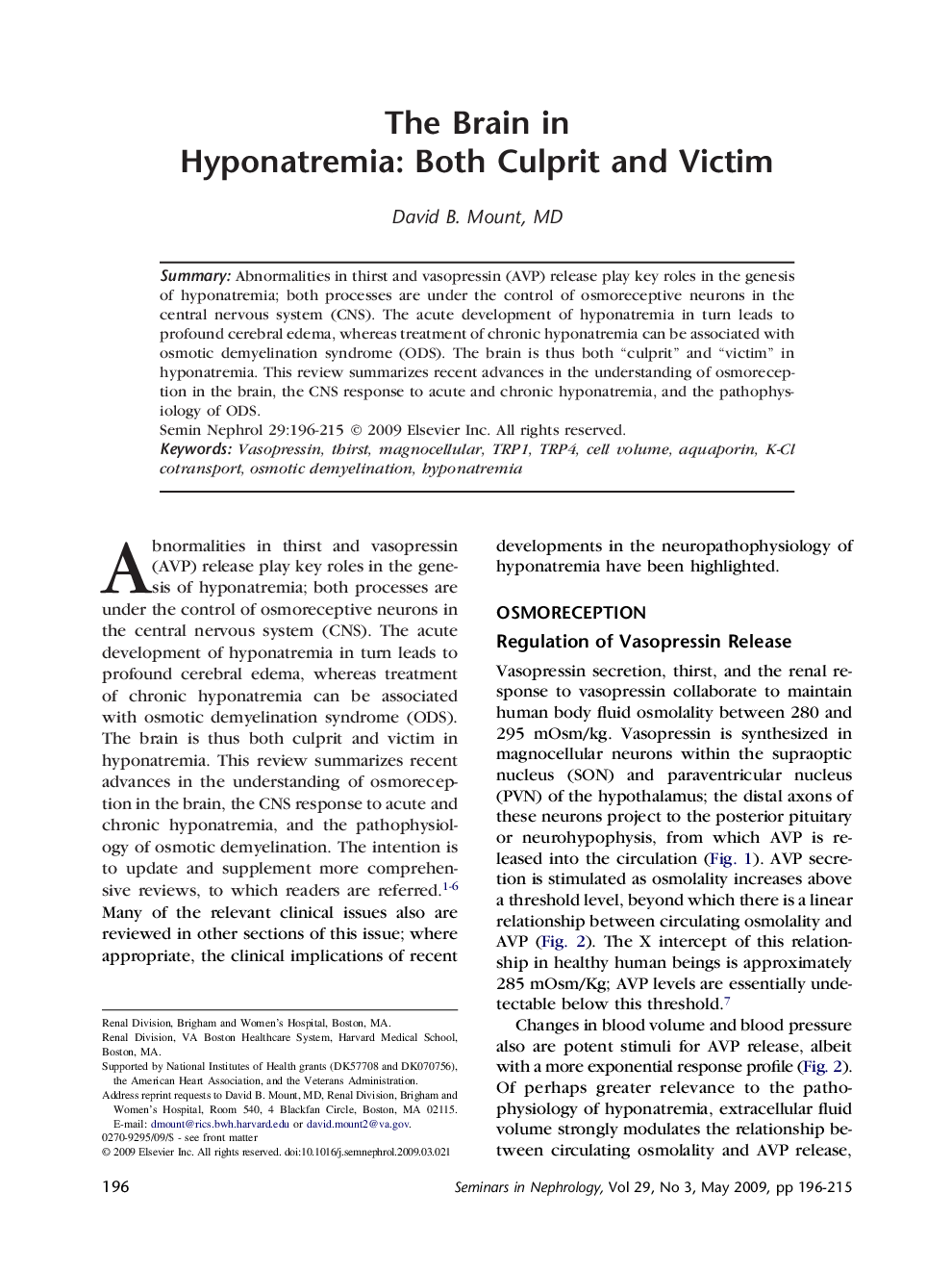| Article ID | Journal | Published Year | Pages | File Type |
|---|---|---|---|---|
| 3896987 | Seminars in Nephrology | 2009 | 20 Pages |
Abstract
Abnormalities in thirst and vasopressin (AVP) release play key roles in the genesis of hyponatremia; both processes are under the control of osmoreceptive neurons in the central nervous system (CNS). The acute development of hyponatremia in turn leads to profound cerebral edema, whereas treatment of chronic hyponatremia can be associated with osmotic demyelination syndrome (ODS). The brain is thus both “culprit” and “victim” in hyponatremia. This review summarizes recent advances in the understanding of osmoreception in the brain, the CNS response to acute and chronic hyponatremia, and the pathophysiology of ODS.
Keywords
Related Topics
Health Sciences
Medicine and Dentistry
Nephrology
Authors
David B. MD,
